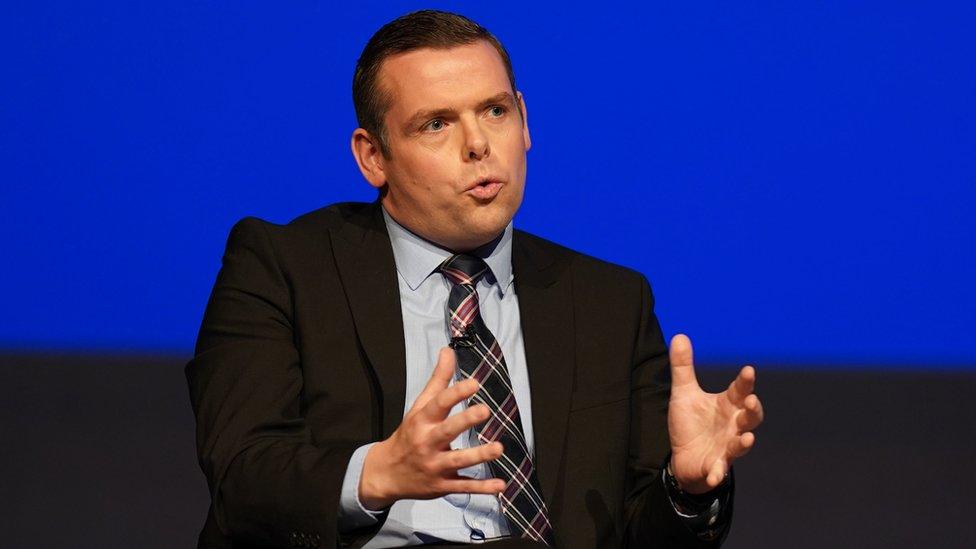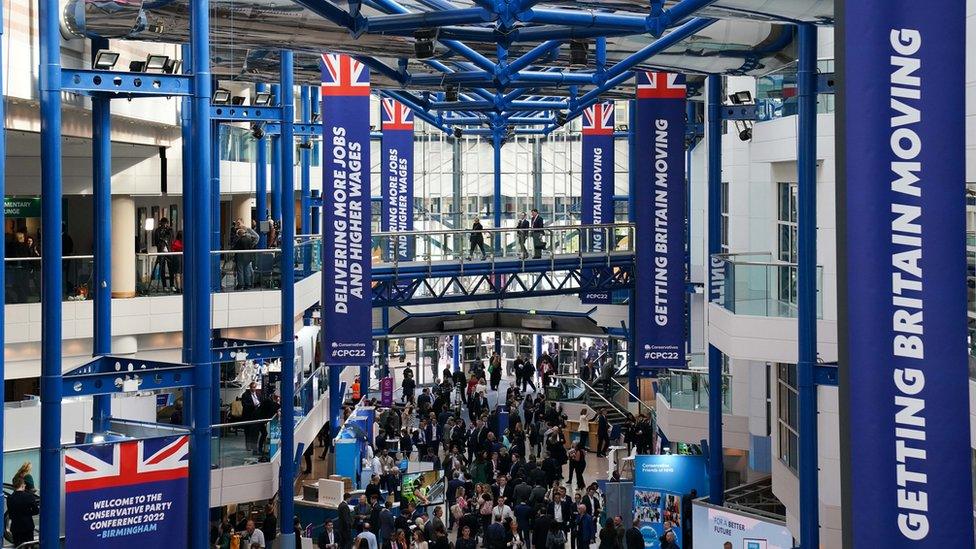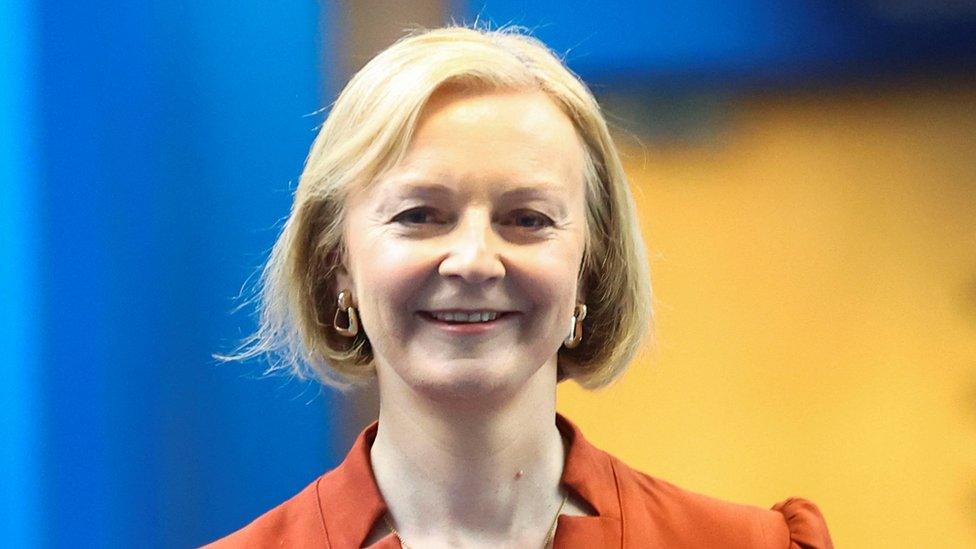Douglas Ross says benefits rise question 'hypothetical'
- Published
- comments

Mr Ross has admitted that some people within the Scottish Conservatives are plotting to remove him as leader
The Scottish Conservative leader has refused to say whether or not he believes welfare benefits should rise in line with inflation.
The policy was a key pledge by former prime minister Boris Johnson.
His successor, Liz Truss, has so far refused to commit to doing the same.
When asked whether he would vote against a real-terms cut to benefits, Scottish Tory leader Douglas Ross said the question was "hypothetical".
He said people in need "should get the most help they can" from the government, but did not clarify whether this meant increases should be linked to rising prices.
A growing number of Conservative MPs including Commons leader Penny Mordaunt are angry at suggestions that increases to working age benefits such as universal credit could be linked to wages rather than inflation in the future.
The government has said it will not make a final decision for a few more weeks, but the row - and the continuing fallout from tax cuts announced in the Chancellor's recent mini-budget - has largely overshadowed the Conservative conference in Birmingham.
In her speech to the conference on Wednesday morning, Ms Truss claimed that "everyone will benefit" from the economic growth produced from her tax cutting plan.
Speaking to BBC Radio's Good Morning Scotland programme ahead of the prime minister's speech, Mr Ross said his party "has always and will continue to support those who need the most support".
He added: "There should be rises in benefits for those who are struggling the most.
"The foreign secretary has been very clear that the government will set out their plans in the coming weeks and months and it is right that we wait to see.
"But you're asking me a hypothetical and the hypothetical that I can answer right now is I want to see the support going to those who need it most."

The Conservative conference has been largely overshadowed by splits over tax cuts and benefit rises
Mr Ross insisted that he still has faith in Ms Truss, despite the tax cuts announced by her Chancellor, Kwasi Kwarteng, sparking turmoil on the financial markets and fury from many within her own party and
And he said the prime minister was right to u-turn on proposals to scrap the 45p rate of income tax for people earning more than £150,000.
Mr Ross had initially said he "fully supported" the "bold" tax cuts announced in the mini-budget, and had called on the Scottish government to match them.
Mr Ross added: "There's clearly major issues facing the country and we've seen for many governments across the world as well.
"These are extremely difficult times, but we need to get together, to be united and to tackle these issues on behalf of local people, communities and businesses who are really struggling.
"I want the focus to be on helping those individuals and families and businesses."

The prime minister has insisted that her economic plan will benefit everyone
Speaking to BBC Scotland's Politics Scotland programme later on Wednesday, Scottish Conservative finance spokesperson Liz Smith said there was "obviously a case" for raising benefits in line with inflation in years where the inflation rate is high.
She added that she wanted a "costed analysis" of any proposed changes to benefits and that policies must be "targeted at those most in need".
Opinion polls have suggested that Labour is currently on course to win a majority at the next general election.
But Mr Ross said he still believed his party could win the election, and that there should not be another referendum on Scottish independence regardless of the outcome of a Supreme Court case next week.
He also insisted he could survive as Conservative leader in Scotland despite moves by anonymous party figures to have him replaced.
Mr Ross said: "I can survive but if anyone else wants to do that they can get up and do the early morning GMS interviews.
"If these anonymous sources want to put their name to it then I'll happily go and speak to them
"I have my views (on who the plotters are) but I'll keep that to myself."